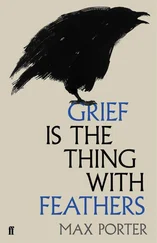When the poem was done, after Walt had retired to enthusiastic applause, Gob took him around to look at the displays. Gob was keen on all of them, a sewing machine or a buttonhole maker put the same light in his eyes as a screw propeller or shiny electric engine, and he seemed to know all the intimate details of every machine’s operation. They examined a harvester that could clear a field of oats in twenty-two minutes, a furniture suite made entirely of india rubber — here they lost Tennie, who sat down in an intricately carved chair and held court for the workmen.
“I think science is his religion,” Maci Trufant said. Walt talked with her some, as Gob stared, open-mouthed, at a copper vat the size of a cottage.
Mrs. Woodhull held a reception for Walt at her home. All that night, Gob was in an ebullient, bouncy mood, the result, Walt figured, of his spending the day at a celebration of machines. Tennie, inspired by Walt’s poem, was playing “find the muse.” “Not here!” she’d say, peeking under a chair cushion. She looked behind curtains and said, “Not here either! No, she is installed among the kitchenware!” Walt couldn’t tell if she was mocking him or not.
This night, it was Walt who retreated to the bench behind the fern, peeking out occasionally to watch Gob circulating among the elegant radicals, laughing with Tennie, putting his hand on Maci Trufant’s arm. Eventually Mrs. Woodhull came and sat down next to Walt, and invited him to a Spiritualist convention up in Troy, for which she would depart late in the evening. Walt politely declined.
“Well,” she said. “I think your poem would be well received there. I am sorry I missed it earlier. You see, my duty to the workers kept me busy all day.” She’d taken on new responsibilities recently, besides those of publisher and broker and presidential candidate. Now she was the head of Section Twelve of the International Workingmen’s Association. Walt said she must be fearless, to associate with Communists. “Yes,” she said. “Demosthenes tells me, ‘Be radical, be radical, but not too damned radical.’ Still, I go where I must in Heaven and on the earth. If I worried what people said of me, then I would stay home all day in bed, prostrate with nervousness. But I think you know as well as I do what it is to be maligned by distempered, ignorant maleficos.” She thrust out her wrists, showing him how she’d sewn the 120th psalm into the sleeves of her dress.
“‘I am for peace,’” Walt said, “‘but when I speak, they are for war.’”
“It’s not easy, is it, Mr. Whitman, trying to improve the world?”
Maci Trufant and Gob were married in April of 1872, in Plymouth Church. How they came to be married in the church of glorious, greasy-headed Henry Beecher, Walt didn’t know. He had been under the impression that Beecher and Mrs. Woodhull were enemies for all that Theodore Tilton, Beecher’s chippish adjulant, had been a near constant presence at Mrs. Woodhull’s house the previous summer. Walt’s misery was compounded by the seating arrangements — he was put next to Tennie and the other Claflins. “Mr. Whitman,” Tennie said to him as they were waiting for the ceremony to begin, “you’ve cut your hair and beard all away!”
“Yes,” said Walt. “All my acquaintances are in anger and despair and go about wringing their hands. ‘Who are you?’ they ask me.”
“I like it,” Tennie said. “It’s taken ten years off you. Why do you deliberately cultivate the aspect of old age?” She looked like she wanted to say more, but she was hushed by music.
Walt put his hand to his greatly shortened beard. He’d cut it all away in anguish when he’d gotten the telegram from Gob announcing his engagement. The news had come as a total surprise. Walt had just returned to Washington from New York, where he’d taken a fat leave of two months spent almost entirely with Gob, during which time there had been no mention of the pending marriage. When Walt got the news, he had sat up all night in his favorite chair, with a glass of whiskey punch in one hand and a letter, recently received from Tennyson, in the other. “He says I have a large and lovable nature,” Walt had said to Hank, who all that bad night would only say one thing over and over, You are a kosmos.
The wedding was a simple and beautiful ceremony, marred only by Tennie’s constant whispering that her nephew and Miss Trufant were making a terrible mistake. Any other church besides Plymouth would have been bursting with the guests — Gob had joked to Walt that his wedding was a campaign event. Mrs. Woodhull’s star was taking crazy dips and turns. It seemed to Walt that she could not appreciate how different species of radicalism were immiscible, how a Woman’s Righter could hate her for being a Communist, how a Communist could hate her for being a Spiritualist, how a Spiritualist could think her a fool for putting too much faith in Graham Crackers.
There was no one Mrs. Woodhull could not alienate, but it seemed there were always people who loved her. The wedding and its association with respectable Mr. Beecher brought out all her old supporters. She sat looking prim and regal as her son was married to her protégé. A moon-faced reverend, not much less dramatic than Mr. Beecher, invoked for the couple the perpetual tropical luxuriance of blessed love. But when I hear , Hank said, of the brotherhood of lovers, how it was with them, how together through life, through dangers, odium, unchanging, long and long, through youth and through middle and old age, how unfaltering, how affectionate and faithful they were. Then I am pensive — I hastily walk away filled with the bitterest envy.
The guests filled up a whole ferry getting back to Manhattan for the celebration at Mrs. Woodhull’s house. Walt tried to hide away in the bow, but little Pickie followed him there.
“Well, Pickie,” Walt said, “now you have a mama.” Pickie shrugged and showed him two uncut emeralds, which he pulled from his pocket as Walt talked. “They are for my brother but you may have one, since you are for my brother also.” When Walt didn’t take either jewel, he put them away and said, “My brother is absent. Your brother is absent. They are absent from this boat, absent from there and there.” Pickie pointed with either hand at Brooklyn and Manhattan, and then up over his head. “They are absent from the sky. The whole world is made up of the absence of brothers.” He took Walt’s hand, and stood with him in the bow, under swarms of gulls flying in circles above the boat, looking back at the milling radicals swarming like the gulls around Gob and his bride. Walt had been the very first to congratulate them — he had made sure of that, that his congratulations were first and heartiest. He’d kissed Gob and said, “My dear boy, I am so very happy for you.” Now Walt looked away from Gob and the new Mrs. Woodhull and stared out across the water at the place where the tower for the great bridge rose high on the Brooklyn shore. Had he gone there one strange night with Gob? Had Gob borne him up to the top of the Brooklyn tower and showed him the impossible vista? It all seemed unreal — every year of perfect loving comradeship seemed unreal and impossible, a ridiculous dream inspired by loneliness. I too knotted the old knot of contrariety, blabb’d, blushed, resented, lied, stole, grudg’d.
“Oh, be quiet, Hank,” Walt said, for the first time ever. Hank was quiet, but another voice spoke next to him.
“Mr. Whitman,” said big Dr. Fie. “You look pensive.”
Little Pickie took his hand out of Walt’s, pointed at the Brooklyn tower, and said, “It comes before and makes the way. It is like me.”
“Yes,” said Dr. Fie. “Run along, Pickie.” The boy ran a few steps and stopped, and started to grab at gulls when they swooped close to the deck. Dr. Fie nodded at the tower. “Can you imagine the bridge?”
Читать дальше












